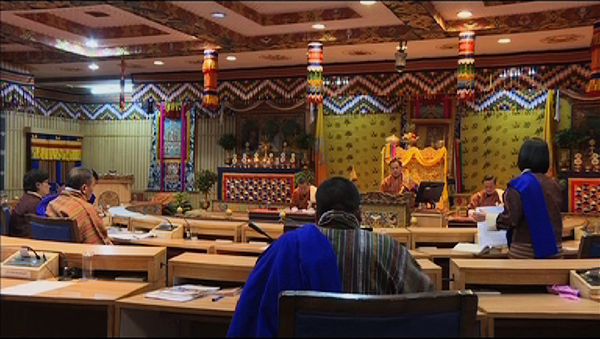 The Technical and Vocational Education and Training (TVET) is still not a preferred choice for the Bhutanese youth. This, according to an interim report of the National Council’s Special Committee, is because not much attention is given to developing professional TVET services in the country.
The Technical and Vocational Education and Training (TVET) is still not a preferred choice for the Bhutanese youth. This, according to an interim report of the National Council’s Special Committee, is because not much attention is given to developing professional TVET services in the country.
The report also highlighted other reasons and challenges such as lack of adequate financial and human resources.
“Going by the current state of unemployment in the country, the youths should be enrolling in TVET programs. But this is not happening and we are facing challenges in making the TVET courses attractive for them,” Eminent Member Phuntsho Rapten said.
“There aren’t adequate facilities like classrooms, hostels and workshops for the trainers. The training equipment and tools are also not adequate. Also, the TVET sector has been neglected with limited budget. Similarly, the industrial linkages were not maintained properly, resulting in fewer number of industrial tours,” Gasa MP Dorji Khandu said.
“The major issue I noticed is that the certificates from various technical training institutes are not accepted widely. Since they do not have any accreditation or affiliation, the graduates could not upgrade their certificates from other countries as well. Some of their certificates were considered equal to that of class ten pass students,” Thimphu MP Tshewang Rinzin said.
While the Special Committee is yet to complete reviewing the findings, some members made various recommendations regarding the issue. The final report will be presented during the National Council’s session later in May.
“There are no technical institutes and colleges in Dagana. Unemployment persists and the economy is also poor there. The youth have nowhere to go for trainings and studies. Reviewing the quality of trainings is important but balanced regional development is also important,” Dagana MP Surjaman Thapa said.
“The labour ministry has been requesting finance ministry for revision of stipend since 2011 but to no avail. The special committee should also work closely with the labour ministry and the finance ministry with regard to the stipends of the trainers,” Paro MP Ugyen Tshering said.
“Most of the parents send their children to private schools if they don’t qualify in government schools due to stereotypes. Parents fear being labelled poor if they send their children to training institutes. So, it is important to educate and inform parents about the advantages and importance of technical institutes,” Trashi Yangtse MP Karma Gyeltshen said.
“It is important to know the status of the youth after they have completed their trainings through tertiary study whether they are working or not. It will definitely help in developing the existing training institutes,” Thimphu MP Tshewang Rinzin said.
Meanwhile, in the 12th Five Year Plan, the TVET sector is given the major chunk of labour ministry’s budget.
TVET system in the country was introduced in mid 1960s. Today, there are about a 100 registered government, private and NGO training providers offering numerous courses at certificate or diploma levels in the country.







